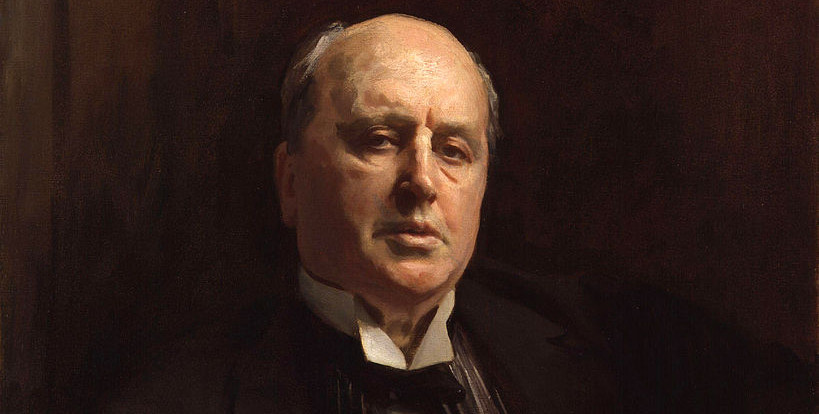Sign posted on Primero Street in New Cuyama, California:

Sign posted on Primero Street in New Cuyama, California:

The Journal International de Médecine carried a startling article in 1987: “Mise en Évidence Expérimentale d’une Organisation Tomatotopique chez la Soprano,” or “Experimental Demonstration of the Tomatotopic Organization in the Soprano (Cantatrix sopranica L.).” In it, author Georges Perec notes that throwing tomatoes at sopranos seems to induce a “yelling reaction” and sets out to understand why:
Tomatoes (Tomato rungisia vulgaris) were thrown by an automatic tomatothrower (Wait & See, 1972) monitored by an all-purpose laboratory computer (DID/92/85/P/331) operated on-line. Repetitive throwing allowed up to 9 projections per sec, thus mimicking the physiological conditions encountered by Sopranoes and other Singers on stage (Tebaldi, 1953). … Control experiments were made with other projectiles, as apple cores, cabbage runts, hats, roses, pumpkins, bullets, and ketchup (Heinz, 1952).
The paper concludes:
It has been shown above that tomato throwing provokes, along with a few other motor, visual, vegetative and behavioral reactions, neuronal responses in 3 distinctive brain areas: the nucleus anterior reticular thalami, pars lateralis (NARTpl), the anterior portion of the tractus leguminosus (apTL) and the dorsal part of the so-called musical sulcus (scMS).
It ends with an incomprehensible diagram modeling the anatomical organization of the yelling reaction. No practical advice is offered the sopranos.
10/18/2024 UPDATE: It appears that Perec wrote the piece originally in 1974 while working as a scientific archivist in the laboratory of neuroscientist André Hugelin. It was Perec’s contribution to a special volume presented to neurophysiologist Marthe Bonvallet on her retirement. (Thanks, Frederic and Bruce.)

In 1979 Auberon Waugh was working as a columnist at Private Eye when his editor offered him a trip to Senegal to help celebrate the anniversary of the magazine’s sister publication. “All I would have to give in exchange was a short discourse in the French language on the subject of breast feeding.”
The assignment struck Waugh as strange but not unaccountable — he’d been writing a regular column in a medical magazine that had touched on that topic.
“So I composed a speech on this subject in French, with considerable labour, only to find when I landed in Dakar that the subject chosen was not breast-feeding but press freedom.” He’d misheard the editor.
“There was no way even to describe the misunderstanding, since la liberté de la Presse bears no resemblance to le nourrisson naturel des bébés.”
(From Waugh’s 1991 autobiography Will This Do?)
“Three blokes walk into a pub. One of them is a little bit stupid, and the whole scene unfolds with a tedious inevitability.” — Bill Bailey
From reader Dave King:
A certain young lady of Prinknash
Was looking decidedly thinknash.
Her diet restriction
Had proved an addiction
And caused her to swiftly diminknash.
A hungry young student of Norwich
Went into his larder to forwich.
For breakfast he usually
Had bacon or muesli
But today he would have to have porwich.
An ethical diner at Alnwick
Was suddenly put in a palnwick
“This coffee you’ve made
Are you sure it’s Fair Trade?
And I must insist that it’s orgalnwick!”
A Science don, Gonville and Caius,
Kept body parts in his deep fraius.
He didn’t remember
And one dark November
He ate them with cabbage and paius.
A Frenchman now living at Barnoldswick
Was terribly partial to garnoldswick.
The smell of his breath
Drove one lady to death;
She fell from the ramparts at Harnoldswick.
A forceful young prisoner from Brougham
Was confined to a windowless rougham,
So, venting his feelings,
He bashed through the ceiling,
Dispelling the gathering glougham.
(Thanks, Dave.)
Glenn Gould composed this piece for the Canadian TV program The Anatomy of Fugue in 1963.

Henry James’ 1903 novella The Beast in the Jungle is written in his famously tortured syntax:
It led, briefly, in the course of the October afternoon, to his closer meeting with May Bartram, whose face, a reminder, yet not quite a remembrance, as they sat much separated at a very long table, had begun merely by troubling him rather pleasantly.
James Thurber parodied this with “The Beast in the Dingle”:
He had brought himself so fully in the end, poor Grantham, to accept his old friend’s invitation to accompany her to an ‘afternoon’ at ‘Cornerbright’ that now, on the very porch of the so evident house, he could have, for his companion, in all surrender, a high, fine — there was no other word for it — twinkle.
Thurber originally called this “The Return of the Screw.” See Homage and A Prose Maze.
In a 1963 issue of Bokmakierie, a magazine for birdwatchers, Frank A. Goodliffe described a curiously familiar species he called Clericus polydenominata, the “dog-collared sombre blackbird”:
Identification: Similar to common laity but plumage and behaviour should serve to differentiate. Plumage black with narrow white collar — unbroken at throat. Feet black, of leathery appearance. Beak pink — often with blueish tint during winter months. When in groups are often seen with wings folded behind rump. … Habits: Usually found congregating with flocks of common laity, the females of which are frequently seen with plumage of vivid colours. Nesting: This usually occurs close to old buildings with spires. They are usually very friendly and may be seen around nesting sites of common laity at tea-time. … Call: The voice is distinctive, commencing ‘Brrrrr–rethren’ and continuing low and pleasant — often prolonged. Usually sings in congregations.
In a private booklet published four years later, M.A. Traylor suggested that the species belonged in the family of bishop birds.
English history 1066-1154 as depicted by Mark Twain:
He had discovered that taking notes using pictures helped to fix details in his memory, and in an 1899 essay he recommended the practice to children. An explanation of the diagram, starting at the bottom:
21 whales heading west: These represent William I, whose reign lasted 21 years (1066-1087). “We choose the whale for several reasons: its name and William’s begin with the same letter; it is the biggest fish that swims, and William is the most conspicuous figure in English history in the way of a landmark; finally, a whale is about the easiest thing to draw.”
13 whales heading east: William II, 1087-1100. The change in direction marks a change in leaders. “Make him spout his water forward instead of backward; also make him small, and stick a harpoon in him and give him that sick look in the eye. Otherwise you might seem to be continuing the other William, and that would be confusing and a damage.”
35 hens going west: Henry I, 1100-1135. “That is a hen, and suggests Henry by furnishing the first syllable.”
19 steers going east: Stephen of Blois, 1135-1154. “That is a steer. The sound suggests the beginning of Stephen’s name. I choose it for that reason. I can make a better steer than that when I am not excited. But this one will do. It is a good-enough steer for history.”
The essay was published in Harper’s Monthly Magazine in December 1914, four years after Twain’s death.